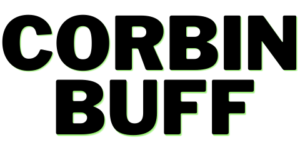
There’s a very popular path in life. One that almost everyone adheres to and recommends.
It looks something like this:
- Go to grade school. Work hard, so you can get into a good college.
- Go to college. Work hard, so you can get a good job.
- Get a job. Work hard, so you can retire.
Pretty simple. Just work hard for 50 years. That’s the message reinforced by friends, family, teachers, bosses, coworkers, and the culture at large. In this simple life path, working hard is the means by which every end goal is achieved. For many people, working hard is the end goal itself. Throughout this piece, I’ll refer to this attitude as The Hard Work Worldview.
The Hard Work Worldview is reinforced our whole lives for a reason: society is designed to educate, train, and employ the lowest common denominator at scale. It simply isn’t economical to encourage and guide everyone to their life’s calling. It’s much easier to tell people to just find something to do and then work hard at it.
As a result, we find ourselves in studies, jobs, pursuits, and lives that are hard, but rarely meaningful. Then, the same cultural messaging devoid of nuance and soul that landed us there in the first place tells us to “just work harder.”
I want to encourage a different kind of message for how we think about work.
My message sounds more like this:
- Find work that aligns with your highest values.
- Find work that’s so fascinating it makes you lose track of time.
- Find work that doesn’t feel “hard” or like “work” at all.
Does that sound a bit utopian? A bit out of touch from reality? I actually argue the opposite: that The Hard Work Worldview is the school of thought with little basis in the real world.
Before I discuss how to find meaningful work, we need to understand why the Hard Work Worldview is so ingrained in our culture.
To do so, let’s address the three fallacies at the heart of this worldview:
- Working Hard Makes You More Money
- Working Hard is Inherently Good and Virtuous
- Working Hard is Better Because MORE is Always Better
Fallacy 1: Working Hard Makes You More Money
The idea that working hard makes you more money is probably the most popular argument for The Hard Work Worldview. Yet it deteriorates quickly.
One need only look at manual labor workers to see that work difficulty and work earnings are not correlated. Many people can generate more money with a single email or phone call than a physical laborer can earn over multiple full days of hard work.
How hard a given piece of work is is irrelevant. Not just because difficulty is subjective, but because the market doesn’t care. What the market cares about is the efficiency, effectiveness, value, and impact of our work. None of which are absolutely correlated with how hard a piece of work is, or even how long it takes someone to do it.
There’s also the issue that hard work looks a lot like inefficient work, while efficient work looks a lot more like laziness. Who is working harder, the man who takes two hours to do a given task, and is an anxious mess while doing it, or the man who calmly performs the same task in thirty minutes? Efficient workers are often deemed lazy, while incompetent workers are praised and promoted because their approach to work appears superficially harder.
Fallacy 2: Working Hard Is Inherently Good and Virtuous
“Sing about the way a good man
Works until the daylight’s gone”
-George Strait, “Heartland“
So maybe hard work isn’t directly tied to making more money. Still, it is a good and virtuous act, one that imbues our lives with meaning and purpose.
Maybe. One could just as easily argue that hard work is more closely tied to alcoholism, stress and anxiety, lack of sleep, and poor health than it is with giving people overwhelming feelings of meaning, virtue, and purpose.
This fallacy largely stems from backward reasoning. We are taught to identify with our work, that our career is who we are. Then we conclude that hard work is good, because we, as hard workers in our careers, want to be considered good.
Fallacy 3: Working Hard is Better Because MORE is Always Better
There’s nothing more American than the idea that more is always more, and more is always better.
But let’s follow this line of thinking a bit further with some examples:
- “If I’m productive working 6 hours a day, then I’d be twice as productive working 12 hours a day.”
- “If I’m happy making $75K a year, I’d be twice as happy making $150K a year.”
- “If I feel good eating vegetables, I’d feel even better eating nothing but vegetables.”
- “If my health improves from eating a bit less, it will improve way more if I eat nothing at all.”
Do you see the pattern? This kind of thinking fails to consider orders of magnitude, and the point of diminishing returns. Taking something that is good in moderate amounts, and pushing it way harder without any sense of nuance is not a wise or sustainable attitude. More is not always more. More is not always better.
The failure to recognize any point of diminishing returns in our work may be a vestige of the industrial revolution. If one is simply doing rote factory work, there is much less risk of diminishing returns. Rote tasks can be repeated for much longer periods of time before they degrade one’s mental bandwidth or physical stamina.
In the knowledge economy, things work a bit differently. One can’t simply demand a knowledge worker work twice as hard, twice as long, or twice as fast, and expect a doubling of effectiveness or output. This is because we all have limited mental/psychic bandwidth. When this bandwidth is fully depleted, we have reached our point of diminishing returns, no matter how much harder we work.
I would argue that almost no knowledge worker “works hard” for more than 5 hours a day. In fact, studies repeatedly find that the average knowledge worker is lucky to get 2 or 3 hours of real, deep, uninterrupted work done. On a productive day, most people check their email, web surf, and watch youtube for 5 hours, and maybe work up to 3 hours. Almost none of us really work as hard as we think we do.
Don’t believe me? Track where your time really goes (a la Peter Drucker) and tell me the results. I think you’ll be surprised how little time you actually spend working.
How to Find Meaningful Work in a Lost World
The Hard Work Worldview is symptomatic of a larger problematic belief. A belief that we must experience outsized struggle, pain, and difficulty in order to make any progress in life. The Hard Worker says, slightly masochistically: I work, I hurt, I struggle, therefore I am. If I just work hard, success will follow, and from it, I will derive meaning.
I would like to introduce a new concept of work, one that begins with meaning, introspection, and individual values. This new way of thinking about work is not an argument for laziness. It is an argument for a nuanced, value-oriented conception of work. The New Worker says: I don’t need to beat myself up in order to confirm and justify my existence. I don’t have to punish myself to deserve success and accomplishment. I can find work that is meaningful, engaging, and in alignment with my highest values, rather than work that is just ‘hard.’
So how do we find meaningful work? As with many things, the answer lies in questions. “Am I working hard?” is the wrong question, because it does not prompt introspection.
Here are better questions:
- What are your values?
- What activities promote, extend, or enrich your life?
- What do you want? Really. (More on this one below)
- What fascinates you?
- What relaxes you?
- What did you love when you were a kid?
- Who is your most inspiring hero or role model? Why?
- What are you talented at?
- What do you enjoy?
- What activities make you lose track of time?
- If you woke up tomorrow and were the last person on earth, what activities would you still do?
I encourage you to actually introspect and journal on these questions. Doing so will reveal a central web of values, passions, interests, and skills. Your vocation, your calling, must be in alignment with these things. It must be in alignment with the nexus of who you are.
Work that resonates with the reality of who you are will at times be hard. But not all hard work is impactful, meaningful, or meant for you. As usual, the world has it backwards. Impactful work begins with meaning and introspection and moves outward from the nexus of who you are. If you begin by doing arbitrary work, then try to make it mean something to you by working harder at it, you’ve fallen for The Hard Work Worldview. You’re working backwards.
“What Do You Want?”
To be clear, this is not an easy process. Part of the problem is that since we’ve been born, we’ve been trained to do what we’re told by others. Isn’t that what most schools and workplaces are really about?
Many people will go their whole lives without asking themselves “What do I want?”
Even then, it takes a great deal of introspection to ensure that your thoughts and desires are your own, to ensure that what you want is really what YOU want and not what consumerism and culture have trained you to want.
One of the main messages in Good Will Hunting (see the video above) is that even brilliant people struggle with seemingly simple questions like this.
3 Books That Will Change How You Think About Work
If you enjoyed the ideas in this piece and want to go further down the rabbit hole, there are some books you might like.
These 3 books changed the way I thought about work, business, and life forever, and inspired some of the ideas in this piece:
- Company of One – By Paul Jarvis
- Anything You Want – By Derek Sivers
- The War of Art – By Steven Pressfield
